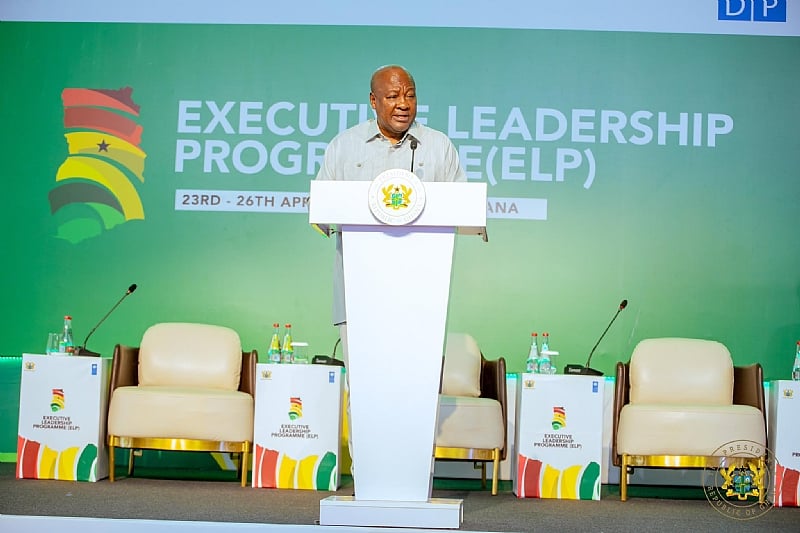Ghana’s interfaith harmony, a cornerstone of national identity, has been lauded by President John Dramani Mahama as a precious asset. This peaceful coexistence among Christians, Muslims, and traditional worshippers, he emphasized, is a remarkable achievement in a world often fractured by religious differences. President Mahama’s address, delivered at a gathering in Accra, underscored the significance of this unity as the bedrock of Ghana’s development and national life. He stressed that this harmony, far from being a given, is a national treasure that must be consciously nurtured and protected. His message was reinforced by quotations from both the Qur’an and the Bible, highlighting the shared values of peace and cooperation that underpin the different faiths. This interfaith harmony, he argued, is not merely a passive virtue but an active force driving the nation forward.
The President’s address served as the platform for a significant announcement regarding Ghana’s national calendar: the designation of July 1st, Republic Day, as a National Day of Prayer and Thanksgiving. This dual celebration, he explained, fulfills a campaign promise made by the National Democratic Congress (NDC) leading up to the 2024 elections. The addition of a national day dedicated to prayer and thanksgiving signifies a renewed emphasis on the role of faith in the nation’s life. It represents a conscious effort to acknowledge and celebrate the spiritual foundations of the country’s identity and to seek divine guidance for its future. This initiative, according to President Mahama, aims to strengthen the nation’s commitment to God and to reaffirm the values of tolerance, love, and mutual respect that characterize Ghana’s diverse religious landscape.
The establishment of the National Day of Prayer and Thanksgiving is envisioned as an annual occasion for collective reflection on Ghana’s spiritual heritage. It is intended to be a day when Ghanaians, irrespective of their religious affiliations, come together to pray for the continued peace, stability, and prosperity of the nation. This shared act of prayer, President Mahama believes, will reinforce the bonds of unity that hold the country together. The day also serves as a reminder of the importance of gratitude, encouraging citizens to acknowledge the blessings they enjoy and to express their thankfulness for the peaceful coexistence that characterizes their nation. This annual observance, therefore, is designed to be both a spiritual and a patriotic exercise, strengthening both the nation’s faith and its sense of shared identity.
President Mahama’s emphasis on interfaith harmony and the establishment of a National Day of Prayer and Thanksgiving reflect a broader vision for Ghana’s future. He sees the nation’s strength lying in its ability to embrace its diversity and to find common ground amidst its different religious traditions. This approach, he believes, is crucial for fostering a sense of national unity and purpose. By celebrating their shared values and praying together for the nation’s well-being, Ghanaians can strengthen the bonds of community and create a more inclusive and harmonious society. This vision emphasizes the importance of both faith and unity in building a strong and prosperous nation.
The decision to combine Republic Day with a National Day of Prayer and Thanksgiving carries symbolic weight. Republic Day, commemorating Ghana’s transition to a republic, represents the nation’s commitment to self-governance and democratic ideals. By linking this day with a focus on prayer and thanksgiving, the President underscores the interconnectedness of the spiritual and the political spheres. He suggests that the success of the nation’s democratic experiment depends not only on sound governance but also on a shared moral compass rooted in faith and gratitude. This combined celebration thus serves as a reminder that true national progress requires both political maturity and spiritual grounding.
The President’s message resonates with the importance of interfaith dialogue and cooperation in a world increasingly marked by religious tensions. Ghana’s experience, he suggests, offers a valuable model for other nations seeking to build bridges across religious divides. By actively promoting tolerance, mutual respect, and shared prayer, Ghana demonstrates the transformative power of interfaith harmony. This approach not only strengthens the nation from within but also contributes to a more peaceful and understanding global community. The President’s initiative, therefore, carries both national and international significance, highlighting the potential of faith to be a force for unity and positive change in the world.














